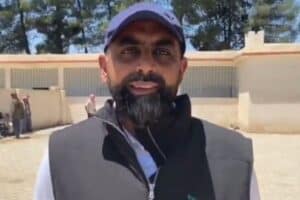We need to harness the SA identity, and language can help us achieve this

I am a proud SeSotho girl that lived most of her childhood in Evaton in the Vaal. I have never been to a so-called ‘multiracial’ school in my life. I remember being asked that question by my new school teachers as I joined the debate society. “Were you in a multiracial school?
They made an assumption that I grew up around white people because of how I spoke English. My accent did not sound like my peers. Mostly because I grew up reading a lot, and yes, watching Days of our Lives and the Bold and The Beautiful. Haha. My aunt could leave me at 8:00 AM watching TV and she would come back at 18:00 PM and I would still be in front of the TV. This is honestly where I learned how to speak English.
I then moved to Soweto in my teenage years and realized that the way I spoke my Sesotho was not like everyone else. There was something raw about it that I did not understand. You know how the Zulu in Natal is different from the Joburg Zulu? This was me and my SeSotho, especially my very raw pronunciation of the letter ‘r’. My ‘r’ sounded like a ‘kg’, and for years I got teased for this.
A few years later, my ‘r’ sounded like everyone else, and my SeSotho as well. Only in my adult years did I realize that I hypnotized myself out of it. I spoke less Sesotho and more English, and along the way, my Sesotho accent was nonexistent. And the truth is, not only did I lose the language, but I also lost my cultural heritage.
For me, language forms an inherent part of who we are as a people. The SeSotho people speak the Sesotho language. I cannot run the risk of distorting that image for my children. We are already fighting with a school system that teaches our kids that their country was ‘discovered’ by some guy in 1652. This teaches our kids that we basically did not exist before then. The universal language of communication came on the same boat with the spice guy. So what about the 9 languages that were created in this very country? Fact is that English and Afrikaans weren’t native languages before the settlers came.
Now that I am an adult, I realize that the command of my home language and the pronunciation of alphabets, including my ‘r’, formed a beautiful part of who I was. I grew up with an old Sesotho woman who encouraged me to read and write. But, when I was speaking to her, I only spoke in my home language. Because of this, my Sesotho was brilliant. Until I got teased and the pride of speaking Sesotho faded away.
During Winnie Mandela’s memorial service, I watched in sadness as her grandchildren failed to pronounce her full name properly. I was sad because I strongly dislike it when my name is pronounced badly. Anybody that knows me knows that I often correct people who call me Karayboo, or Carabo, unless you’re not Black, then I can try to forgive you.
I have a responsibility as a parent to teach my daughter who she is, and where she comes from. I try very consciously to speak Sesotho, Zulu, and English with her. She is at an age now where her brain is a sponge. I read an interesting article by Motherly, encouraging parents to teach children a second language by 3 or 4 years of age. This is quite simple for us as South Africans because we have 11. So it is amazing that our children start school already having a good command of 2/3 languages, based on how many are spoken in the family.
My main argument is that one language should not be more important than the other. I do not want to raise a ‘coconut’ or ‘educated black’. I want to raise a child that knows and is proud of who she is. When I encourage my daughter to know and speak her home languages, not only will I be encouraging her to have a good understanding of it, but to also embrace her culture.
There are so many biases when it comes to language. I remember how I would get side-eyed in the taxi if I breathe a word of English. Or how corporate SA would take me more seriously when I spoke English. I am in HR, and I saw many people lose out on good jobs because their English accent was just ‘too black’. This alone is a conversation for another day.
My point is that we need to raise human beings that are all rounded. How amazing would it be if a white and a black child could have a beautiful and fluent conversation in Zulu?
On a final note:
Dear parents,
Spanish and Mandarin are awesome languages to learn, but we have 11 official South African languages that we can choose from first. We need to be the generation of parents that fosters a collective identity for our children. They might be differentiated by the color of their skin and their backgrounds, but language can help unify them. We need to harness the SA identity, and language can help us achieve this. Being a South African goes over and above just merely being born in this country. We need to openly embrace the rainbow nation we speak so highly of.
Support Local Journalism
Add The Citizen as a Preferred Source on Google and follow us on Google News to see more of our trusted reporting in Google News and Top Stories.








